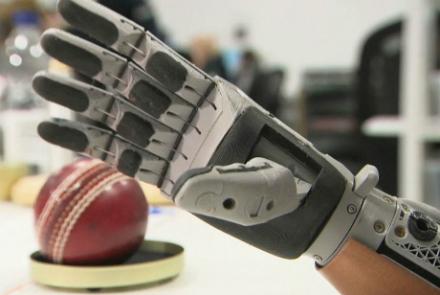A 10-year-old boy, Cameron Millar from Edinburgh in Scotland, has been successfully crowdfunded 13,300 US dollars for a 3D-printed prosthetic hand.
Millar, who was born without his right hand, says he's looking forward to receiving the prosthetic limb as he can't currently play with toys as well as his peers or play musical instruments.
Scottish radio station Radio Forth helped with the crowdfunding for Cameron, who is right-side dominant despite missing his hand.
His mother, Margaret, says that made things difficult from an early age, as young Cameron would motion to receive objects with his right arm and couldn't understand it wasn't possible.
Cameron's bionic hand is the first to be medically-approved in Europe and the US and was developed by Bristol-based company Open Bionics.
CEO Joel Gibbard says the hand works by picking up on signals from the arm's muscles that would normally be moving the hand and fingers.
With the 3D-printed prosthetic, Open Bionics are making the first bionic hands small enough to fit children and are hoping to make them less expensive for more people to afford them.


